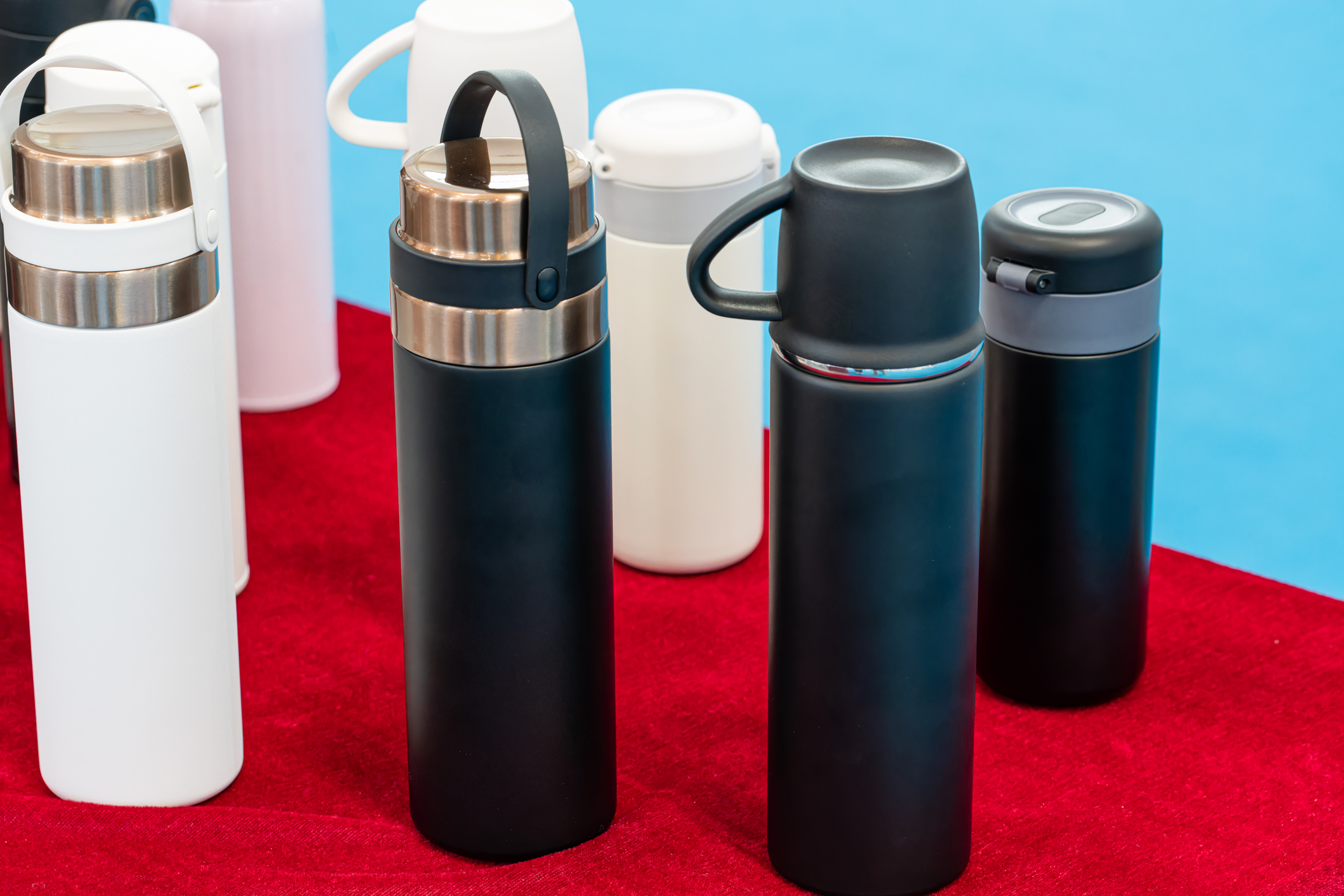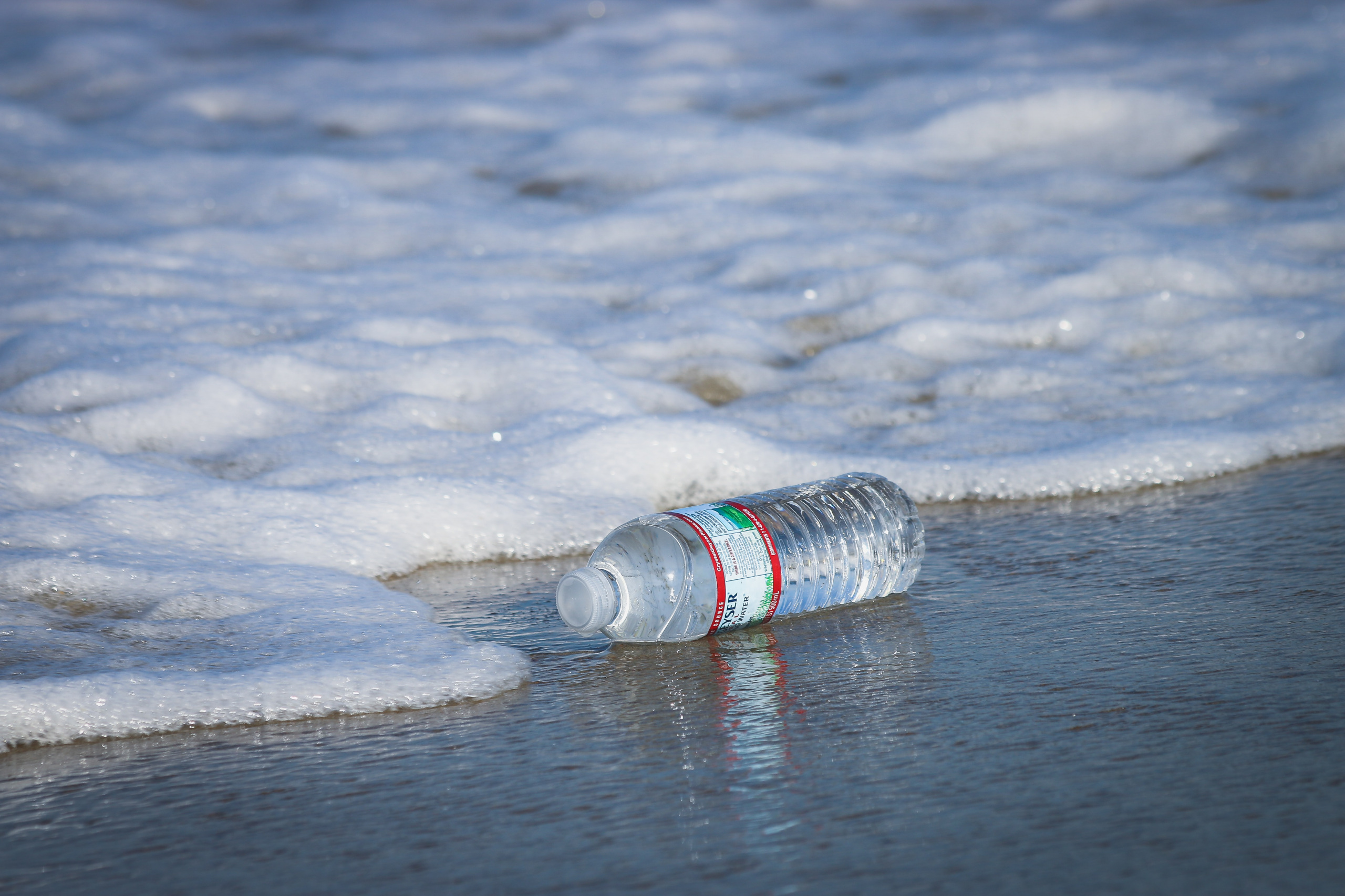
How France’s Anti-waste Law targets plastic waste at its source
The United States should look to France as a model for plastic waste reduction policy.
Plastic packaging is so ubiquitous that we can often forget that much of it is unnecessary. Occasionally, though, an especially absurd example can still grab people’s attention.
In 2016, Whole Foods tried selling individual pre-peeled oranges in single-use plastic boxes. A tweet calling out Whole Foods for generating pointless plastic waste went viral, and within hours, the grocery chain announced it would stop selling the product.
But while Whole Foods’ decision to remove the product from the shelves in the wake of “Orangegate” was a positive step, there is not much stopping the next unscrupulous retailer from doing the same thing in the future.
That’s not the case in France, which has taken a common-sense step to eliminate waste from wrapping perfectly good fruit in plastic: making it illegal. As part of France’s landmark 2020 Anti-waste Law, the nation banned plastic packaging on oranges, bananas, carrots and many other types of produce beginning in January 2022, and by 2026, wrapping fruits and vegetables in plastic will be fully prohibited. The law provides a model for how the U.S. can take on plastic waste.
First, it sets a national target of eliminating single-use plastic by 2040. Second, it establishes intermediate goals to help the country stay on track, including a 20% reduction in the amount of plastic present in single-use packaging by 2025. France’s Ministry of Ecological Transition recommends relying on other materials and reducing packaging altogether, among other strategies. Further reduction goals that are in the works for 2030, 2035 and 2040 will help sustain country-wide momentum for this effort. Finally, the law includes several specific plastic waste reduction policies that continue to be phased in at supermarkets and beyond.
One such policy is eliminating non-recyclable plastic branding stickers for fruits and vegetables, which remain widespread in the U.S. Instead, since January 2022, France has required produce labels to be made of a “compostable material” like paper. Beyond the produce department, tea bags can no longer be plastic, which will cut down on waste and protect consumers from drinking microplastics.
The law also tackles plastic waste in restaurants, coffee shops, bars and other public eating establishments. Restaurants with a capacity of at least 20 customers must provide reusable tableware, including bowls, plates, cups and utensils, to those dining in. Restaurants must also inform customers that drinking water is free, so diners should rely less on purchasing bottled water for a casual meal. Finally, kids’ menus can no longer come with plastic toys, which are rarely recyclable and often end up in landfills.
France has found ways to reduce plastic waste from takeout as well. Polystyrene, more commonly referred to as Styrofoam in the United States, is often used for single-use takeout containers even though it is not widely recyclable. The Anti-waste Law bans these containers and two other takeout staples – plastic straws and cutlery – requiring eateries to switch to reusable containers and compostable alternatives like paper. Alice Elfassi, head of legal affairs at Zero Waste France, told Packaging Getaway that she expects many restaurants to switch to “hard plastic” containers and promises the organization will be “vigilant” about monitoring how many times they’re reused. The law also prohibits coffee shops from offering plastic cups, including hot beverage cups often made of paper coated in a thin layer of plastic. Since cafes need to source a compostable alternative, which will likely be more expensive, it’s in their interest to encourage customers to bring a reusable cup.
France has also tackled plastic waste by restricting plastic in two of its most commonly encountered forms: single-use bags and bottles. France prohibited giving single-use plastic bags to consumers in two waves – 2016 and 2017 – but some retailers continued to do so. The Anti-waste Law strengthens the ban by making it illegal to “import or manufacture” the bags. The law also requires water fountains in many public spaces, including schools, libraries and train stations, which should reduce reliance on bottled water and make carrying a reusable water bottle even more worthwhile.
There’s even more plastic waste reduction in store as the law continues to be phased in. As of January 1, 2025, selling newspapers and magazines in plastic wrap will be illegal. In the United States, this wrap isn’t eligible for curbside recycling and can only be recycled at special facilities, making it even less likely to stay out of a landfill than widely recyclable plastics. Also, new washing machines sold on or after January 1, 2025 must have a microplastic filter to minimize what’s added to the estimated 170 trillion microplastic particles already in our oceans.
The Anti-waste Law covers a wide range of plastic applications, but many of its policies share a common thread: producer responsibility. Because plastic manufacturers and retailers add excess plastic to everything from fruit to tea bags – and consumers often have few options to avoid those products – it should be producers’ responsibility to manage its disposal and keep plastic waste from clogging our streets and polluting our oceans. France has taken this approach for decades, with packaging from groceries and other household items included in its producer responsibility program (also known as “extended producer responsibility,” or EPR) since 1992. The results speak for themselves: From 1992 to 2020, the recycling rate for household packaging waste in France nearly quadrupled.
The United States has no such national program, but producer responsibility laws are picking up speed at the state level. In July 2021, Maine passed America’s first statewide producer responsibility law for packaging, and Oregon followed suit just a few weeks later. California stepped up in 2022 with a far-reaching law pairing producer responsibility for packaging with timelines for cutting down on single-use plastic packaging (among other plastic products) and raising plastic recycling rates. Two different producer responsibility packaging laws are currently under consideration in New York’s state legislature. These programs, both enacted and proposed, could lay the groundwork for federal action in the future
Hoping consumers will stay away from boxed oranges – or other overly packaged products – isn’t a solution to the plastic waste crisis. Instead, the United States should follow France’s lead by restricting plastic use at its source and holding plastic producers responsible for the waste they continue to create.
Topics
Authors
Janet Domenitz
Executive Director, MASSPIRG
Janet has been the executive director of MASSPIRG since 1990 and directs programs on consumer protection, zero waste, health and safety, public transportation, and voter participation. Janet has co-founded or led coalitions, including Earth Day Greater Boston, Campaign to Update the Bottle Bill and the Election Modernization Coalition. On behalf of MASSPIRG, Janet was one of the founding members of Transportation for Massachusetts (T4MA), a statewide coalition of organizations advocating investment in mass transit to curb climate change, improve public health and address equity. Janet serves as Chair of the Board of Directors for the Consumer Federation of America and serves on the Common Cause Massachusetts executive committee, Alliance for a Healthy Tomorrow board of directors, and Department of Environmental Protection Solid Waste Advisory Committee. For her work, Janet has received Common Cause’s John Gardner Award and Salem State University’s Friend of the Earth Award. Janet lives in Cambridge, Massachusetts, with her husband and two sons, and every Wednesday morning she slow-runs the steps at Harvard Stadium with the November Project.
Louis Sokolow
Former Policy Associate, Frontier Group
Find Out More

Too much of a good thing? The environmental downside of the “Stanley cup” craze.

A look back at what our unique network accomplished in 2023

Buying less stuff is good for the planet. It’s also good for us.



